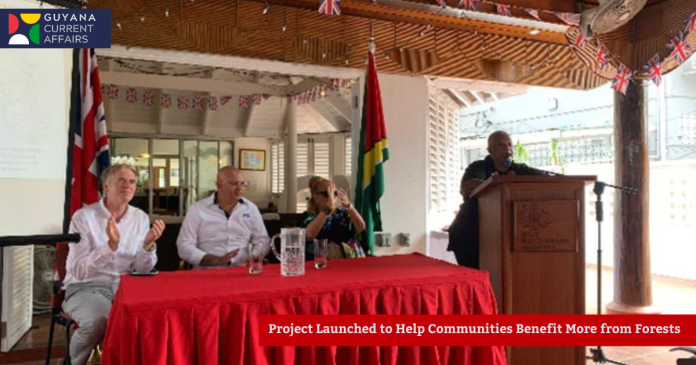A major new initiative has been launched in Guyana to empower local communities and ensure they benefit more directly from the country’s vast forest resources. The project, part of the European Union-funded “Sustainable Forest Livelihoods for Communities in Guyana and Suriname” (SFL) programme, aims to promote sustainable forestry practices, strengthen community governance, and foster economic opportunities while safeguarding the environment.
Empowering Communities and Supporting Sustainable Livelihoods
With a budget of €10 million and a four-year timeline (2023–2027), the SFL project is being implemented by the World Wildlife Fund (WWF) and the Guyana Forestry Commission (GFC), in partnership with local authorities and stakeholders. The programme targets rural women, men, and youth from indigenous, tribal, and local communities in Regions 2, 9, and 10, as well as similar communities in Suriname. State institutions, regulatory agencies, civil society, and the private sector are also involved as secondary beneficiaries.
The project’s core objectives include:
- Strengthening the capacity of local communities to manage forest resources sustainably
- Supporting the development of equitable, income-generating activities linked to forests
- Establishing sustainable financial mechanisms to ensure long-term benefits
- Providing technical training and equipment for value-added wood production
- Upgrading training facilities such as the Yarrowkabra Training Centre to enhance skills development
Innovative Approaches and Inclusive Collaboration
A key component of the initiative is the promotion of value-added wood processing, which seeks to move beyond traditional timber harvesting by encouraging innovation, collaboration, and the use of less popular wood species. A recently launched $192 million pilot project under the Forest Value Creation Hubs will link local producers and communities to new markets and certification opportunities. Training opportunities are being extended to youths and students, particularly at the Bina Hill Institute in Region Nine, with a strong emphasis on integrating indigenous knowledge and woodworking techniques.
The project also underscores the importance of free, prior, and informed consent for indigenous communities, ensuring their participation and respect for their rights as mandated by the Amerindian Act of 2006.
National and Regional Significance
This initiative is seen as a significant step in Guyana’s commitment to maintaining healthy forests, promoting environmental stewardship, and supporting sustainable economic development. By focusing on community-based forestry management, technical training, and value-added production, the project aims to generate best practices that can be replicated across the country and the wider Guiana Shield region.
The launch was marked by strong support from government officials and international partners, who highlighted the project’s potential to protect biodiversity, mitigate climate change, and ensure that the benefits of sustainable forestry are shared equitably among all Guyanese.
As Guyana continues to balance economic growth with environmental protection, this project represents a forward-looking model for how communities can thrive alongside the forests they have long depended on.


